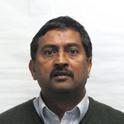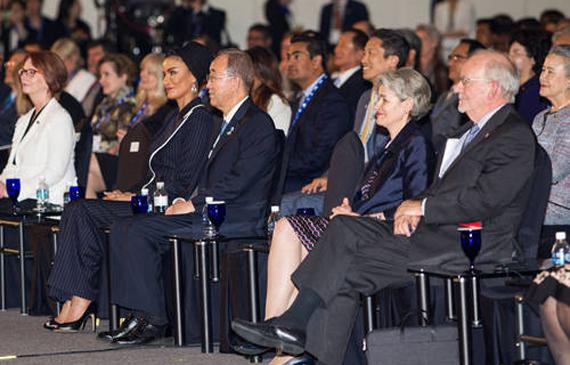A transformative vision for education over the next 15 years was adopted at the World Education Forum, held in May 2015 in Incheon, Republic of Korea. The Incheon Declaration encourages countries to provide inclusive, equitable and quality education and life-long learning opportunities for all. It will underpin the education targets in the sustainable development goals that will be ratified at the United Nations in September. We talk to Jordan Naidoo from the United Nations Educational, Scientific and Cultural Organization about the education vision for the next 15 years.
DD: The Declaration on the Future of Education has been recently adopted at the World Education Forum. Does this mean automatically that by 2030 every child will be in school?
JN: That is the intention and hope. However, we know from experience that there are a number of constraints that make this very difficult to happen. We hope that through the new agenda, greater commitment and further resources, the number of out-of-school children can be reduced to a negligible amount. Furthermore, we also need to utilize innovation, and this may mean that not every child will necessarily access education through school attendance per se. We will have to utilize different delivery mechanisms to reach them, in particular those who have been excluded, including the poorest, children with disabilities and children living in remote areas and in contexts of conflict.
DD: Currently, 58 million children, most of them girls, remain out of school. How does this compare to 2000?
JN: Despite the huge number of children still out of school, there has been significant improvement, as the number in 2000 was approximately 115 million. Furthermore, the biggest reduction has been among girls, with many countries reaching gender parity in primary education. We have also seen an increase in transition to lower secondary school, with many more countries guaranteeing at least nine years of free and compulsory education.
DD: Are there intermediate deadlines to meet the target of sustainable development goal 4, that by 2030 the world has put every child in school?
JN: In the Framework for Action we propose that certain targets will need to have interim benchmarks to be met within five-year time frames. For example, as we reach primary enrolment and completion benchmarks we will need to set new lower- and upper-secondary benchmarks. Similarly, given the serious shortage of qualified teachers and their importance for ensuring quality learning outcomes, we cannot wait till 2030 to check how we are doing on the teacher target. We would need to set earlier time-bound benchmarks for teacher numbers.
DD: Around 250 million children are not learning basic skills, even though half of them have spent at least four years in school. How do you explain this? What can be done about this?
JN: There are a number of reasons for this, including but not limited to availability of a minimum level of resources. In the least performing countries, we often find overcrowded classrooms, with very poor learning materials and weak learning and teaching practices. In many of these contexts teachers are either untrained or undertrained and do not have the skills to support effective learning. Many of these systems lack proper curriculum supervision and support. Also, a big proportion of non-learning occurs in conflict-affected contexts where schooling is often interrupted for long periods. In some systems there is also inadequate assessment of learning and teaching. There needs to be a systematic approach to improving teacher development, increasing resources and using them more efficiently, setting in place more robust formative and non-summative assessments, supporting families and marginalized groups, and improving infrastructure, among other measures.
DD: What is involved in crafting the Education 2030 Framework to implement the Incheon Declaration?
JN: We have a draft Framework for Action that has been developed through broad-based consultation over the past year. We will continue to refine the framework to ensure that it is fully aligned and consistent with the final Incheon Declaration and to incorporate key issues raised at the World Education Forum. Further, we will need to incorporate amendments that may be needed based on the outcomes of the Addis financing for development conference and the New York sustainable development goal summit. In the longer term there will need to be clear coordination, led by UNESCO and partners. Key to taking forward the agenda is national leadership and ownership to ensure that national priorities set the pace. In addition, UNESCO will work with partners to strengthen implementation and monitoring capacity at all levels.
Contributor

Jordan Naidoo is Director of Education for All and International Education Coordination at the United Nations Educational, Scientific and Cultural Organization Education.


Post a comment